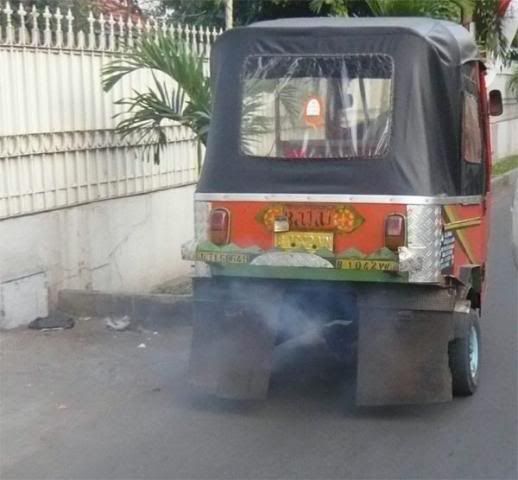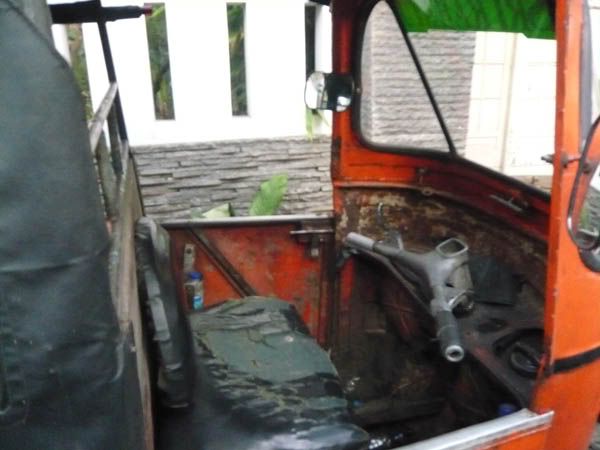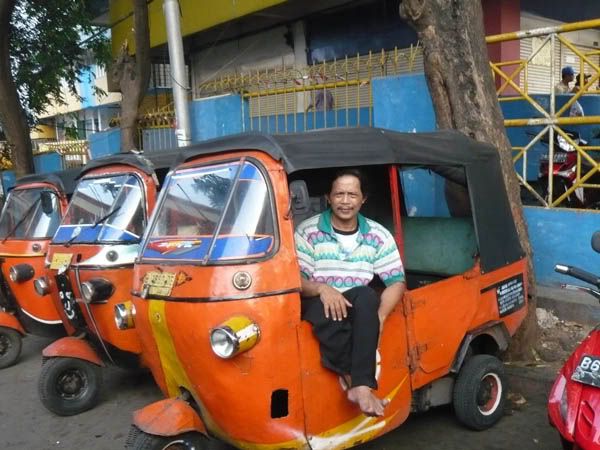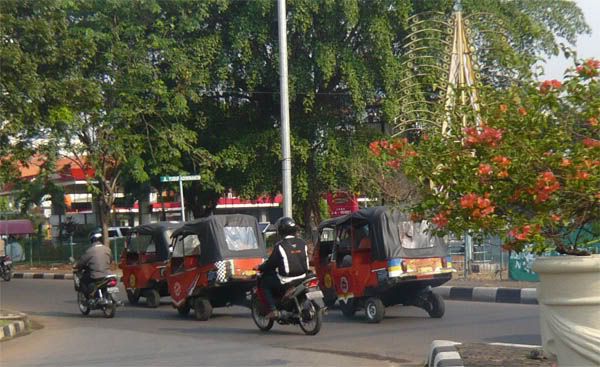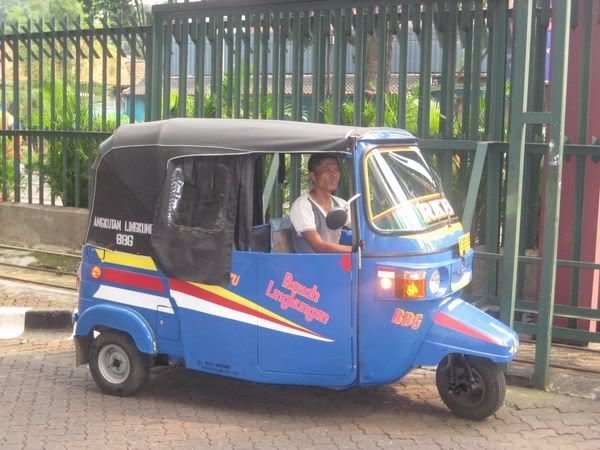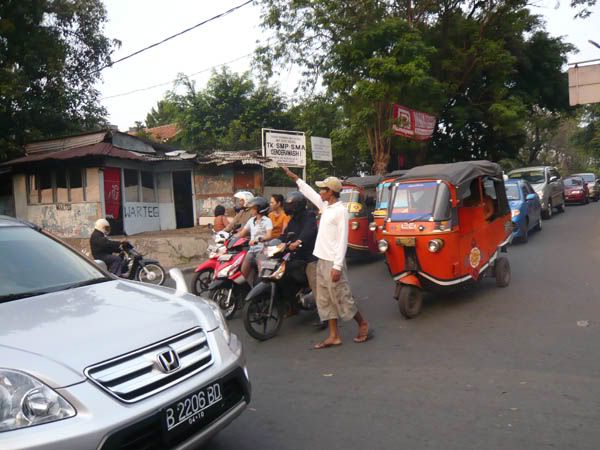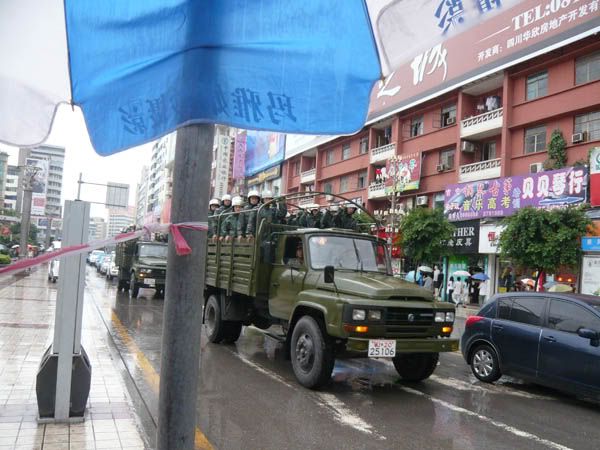
And the first questions are as follows:
How much shit do you drink?
Do you keep your mouth shut when you shower?
Bottled water for brushing teeth?
How are your dishes and cutlery washed?
Rinsing fruit or salad, is it under the tap?
Sanitation in this country, pfftt, it simply does not exist (with the possible exception of Lippo Karawaci where an acquaintance of mine ensured that the sewers and water mains went in before the buildings went up), and worse, the government does not seem to be interested despite the fact that it is a danger to public health and as a result, actually costs money through lost work days, illness, flood damage and, unfortunately death.
Here, waste is carelessly disposed off, dig a drainage ditch to alleviate flooding, it becomes a rubbish bin,
river nearby, it becomes the municipal skip, flood control channels, why not rename them as waste control centers.
Poor planning (quite possibly since the city was founded) ensures that roads are built with no regard to drainage, the ubiquitous poly bags are slowly but surely choking the city, yet, there is another, deadlier problem lurking just beneath the surface.
I get a water bill every month, funny that, I do not get mains water, the well in the garden supplies all the H2O we use.! Hold on, it could be for the sewers….emm, no, I have a septic tank!
The same is true of possibly 90% off Jakarta and in the poorer areas, there is quite plainly inadequate sewerage facilities. Building a house, (or upgrading ones squat) there will be a septic tank, which, thanks to an oversight committee, there are no standards for, both in design and construction.
More often than not they leak and more often than not the lie directly on top of the households water source.
A recent survey (I am actually amazed that a survey was commissioned and conducted) indicated that 70 percent of wells in Jakarta are contaminated by faeces. Got the shits, bad luck, it was probably your own shit that caused it.
The monetary value assigned to losses from Sanitation problems was estimated by the World Bank in 2006 as being US$6 billion (Rp 56 trillions).
Seems to me that could build a whole lot off shitters that work properly.
Got to dash, I forgot to buy my weekly dose of Immodium!


